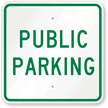Mobile parking app watch: PassportParking
Over the past couple of years, we’ve heard a lot about mobile parking apps, from ones that help find vacancies and keep users posted on pricing (ParkMe) to apps that tell users when their time is running out and allow them to let circling motorists know when they’re about to vacate a space.
Many if not most standalone apps make parking more efficient by helping to allocate cars to spots; ParkMe makes garage parking a more practical – but less expensive – option.
Integration is a more complicated challenge, though, because managing parking for a large area means doing a lot of different things at once. Giving users information on free spots, allowing them to pay for those spots, and relaying the cash to local authorities is a complicated ballet, a machine with so many moving parts: you need sensors, meters, workable user interface, and signage so motorists know what their options are.

Detroit is soon to benefit from PassportParking’s integrated parking management. From gab482.
Enter PassportParking, a nascent startup in Charlotte, NC that’s taking on ever larger clients, offering a system that allows users to find spots and pay for them. It manages everything from enforcement to timing and meter-feeding. Its clients are municipal as well as some private enterprises with largish systems to take care of.
A few benefits of PassportParking’s systems: they don’t cost much but in at least some cases have increased receipts; they allow motorists to pay and even meter-feed (where that’s allowed) from their phone, reducing the need to carry around jars of quarters; they track metrics like parking rates at different hours and vacant spots; they allow for rate changes and event management, and they issue (and collect on) citations, all using cloud-based tools.
Rather than being strictly centered on the consumer – and relying on them to voluntarily pay for an app that makes paying third parties more convenient – integration like this suits the cities that adopt it. It enables them to outsource most of the functions of municipal parking management at a low price, since PassportParking itself makes its money by charging a fee of a few cents for the transactions it’s involved in.
As someone who’s had to find a spot in the Chicago suburb of Oak Park a few times, I can vouch that it was a nightmare. After a few days of driving around, I started to recognize the cars that I’d find cruising around the center of town looking for a spot at the same time I was. Someone would pull out of a spot near the train station and it’d be a race to see who got there first. It felt like a Hobbesian endeavor: solitary, poor, nasty, and brutish.

Oak Park, Illinois: one of the PassportParking’s biggest customers. Courtesy Payton Chung.
According to a recent article about Oak Park’s transition to PassportParking’s pay-by-phone service, the city will pay $5,000 for the service, and those costs are projected to be recouped through more efficient collection services. PassportParking then garners a one-time fee for users who use the app to pay for their spots.
We still have questions about the service. Does PassportParking collect a portion of every ticket they issue, too? What do they do if a motorist doesn’t pay – does the onus for further collections end up back with the city? What exactly does the “one-time” $0.35 fee mean to users – is that fee tacked on once per phone number, per parking spot, per day, what?
Still, if Passport’s services scale well enough to take care of a bigger parking ecosystem like Detroit’s (where they’re scheduled to start taking charge of at least some meters soon), full-service mobile parking apps like this might start to make appearances more often.
Related Posts
Category: Parking Tech





















